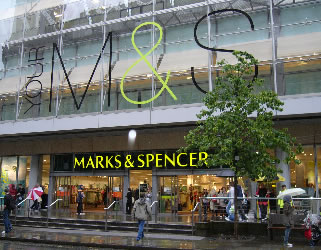 Following the 15% staff reduction recently announced, Aer Lingus is now cutting more jobs as its transformational plan did not come to an agreement. Ireland's second largest airline was proposing a permanent change in the remuneration of its employees, but after eight weeks of talks no deal has been made and now more layoffs seems to be on the way as the company struggles to remain independent. Ryanair, its low-budget rival, has already tried two bid approaches which were fended off. As revenues are falling and fuel prices rising, it has to cut jobs, routes and ground more aircraft in order to reduce costs. The transformational plan foresees savings of 100m euros and was being discussed between Aer Lingus' management and unions, however as pilots' union demanded very high compensation for a few years of wage shrinking, there was no agreement between both sides and hence more jobs are currently at risk.
Following the 15% staff reduction recently announced, Aer Lingus is now cutting more jobs as its transformational plan did not come to an agreement. Ireland's second largest airline was proposing a permanent change in the remuneration of its employees, but after eight weeks of talks no deal has been made and now more layoffs seems to be on the way as the company struggles to remain independent. Ryanair, its low-budget rival, has already tried two bid approaches which were fended off. As revenues are falling and fuel prices rising, it has to cut jobs, routes and ground more aircraft in order to reduce costs. The transformational plan foresees savings of 100m euros and was being discussed between Aer Lingus' management and unions, however as pilots' union demanded very high compensation for a few years of wage shrinking, there was no agreement between both sides and hence more jobs are currently at risk.Anyway, the article published in the Irish Times was still more cautious than the English ones. Its correspondent takes good care of the language used as it is noticeable straight from the headline. The structure that he uses, saying "jobs may be go" and "1000 workers could be made redundant", for instance, gives it a calmer tone and a more realistic view of what is happening. He goes into details about Aer Lingus' though situation and the development of the plan proposed. It is even mentioned the next board meeting (on Friday) which is yet for me part of the decision the author took to contain people's reaction during this moment of turmoil - considering it is one of Ireland's biggest newspapers.
Finally, the three English stories were very direct about the job cuts. The Times, in particular, was the one that focused more on the details behind the recent talks and the scenario which the airline is involved. Did not feel any bias in that piece of news, though it seemed to be a bit too emphatic in relation to the plans failure and especially the layoffs. The other two were briefer than that, mainly the Daily Mail as the tabloid lived up to my expectations of a tabloid and provided short phrases with a simple content that makes it easier to have a quick overview on the company's condition. Still, its language style, as well as the guardian's, is not really prudent, I suppose. Their way of putting such bad news such as the airline's losses and the dismissal of 1000 positions shocks readers aware of the airlines trajectory and drives those tangled crazy. However, it possibly boosts sells and, also as a result, highlights a tabloids identity in the media, leaving room for controversy but not concern of the consequences involved.
Thus, my view on this story is that Aer Lingus will have to have a better control on its costs and since it is in such delicate situation, job losses will be inevitable if the company really intends to remain independent and respectable. Moreover, as far as I am concerned it is more possible to find airlines with incredible deficits than surprising profits. It is not the first time this Irish carrier faces a hard time, and just like the last difficult moment, which led to a complete reorganisation to a more functional model, I believe the company can survive this turbulence and continue flying even if it means ripping off benefits and considering the Ryanair style of market takeoff.






